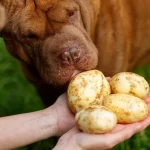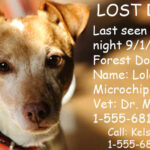Is Mulch Toxic To Dogs
Mulch and Dogs: Separating Fact from Fiction
Mulch is a common landscaping material that can provide many benefits to plants and soil, such as retaining moisture, suppressing weeds, and adding nutrients. However, some pet owners are concerned about the potential risks of mulch to their dogs. In this article, we will explore the question “Is mulch toxic to dogs?” and provide evidence-based answers that can help you make informed decisions about your furry friends.
What is Mulch?
Mulch is a layer of organic or inorganic material applied to the soil surface around plants. Organic mulches include shredded leaves, wood chips, straw, grass clippings, compost, and bark. Inorganic mulches include rocks, gravel, plastic sheeting, and rubber mats. Each type of mulch has its own advantages and disadvantages depending on the climate, soil type, plant species, and aesthetic preferences.
Why Do Dogs Eat Mulch?
Dogs are notorious for eating things they shouldn’t eat, such as shoes, socks, toys, furniture, garbage, and even poop. Eating mulch may be part of their natural instinct to explore their environment with their mouth and nose. Mulch may also smell or taste appealing to dogs due to its organic compounds or contaminants.
However, some dogs may eat mulch out of boredom, anxiety, curiosity, or hunger. If a dog is not getting enough exercise or mental stimulation, it may resort to destructive or inappropriate behaviors such as digging up mulch. If a dog is anxious or stressed due to separation anxiety or other triggers, it may seek comfort by chewing on mulch. If a dog is hungry or malnourished due to poor diet or medical conditions such as diabetes or thyroid problems, it may crave non-food items including mulch.
Therefore, it’s important for pet owners to address any underlying behavioral or health issues that may lead their dogs to eat mulch. Providing enough exercise, playtime, and socialization can reduce boredom and anxiety. Offering a balanced and nutritious diet can prevent hunger and cravings. Training and supervision can teach dogs what is acceptable to chew on and what is not.
Is Mulch Toxic to Dogs?
The short answer is: It depends on the type of mulch and the amount ingested. Some types of mulch contain chemicals or substances that can be harmful or even fatal to dogs if ingested in large quantities or over time. Other types of mulch are relatively safe for dogs as long as they are not eaten excessively or directly from the bag.
Here are some common types of mulch and their potential risks to dogs:
1. Cocoa Bean Mulch: This type of mulch is made from the shells or husks of cocoa beans, which contain theobromine, a stimulant similar to caffeine that can cause vomiting, diarrhea, hyperactivity, seizures, and even death in dogs if consumed in large amounts. The scent of cocoa bean mulch may also attract dogs due to its chocolate-like aroma. Therefore, it’s best to avoid using cocoa bean mulch if you have dogs.
2. Cedar Mulch: This type of mulch is made from cedar trees, which contain aromatic oils that repel insects and fungi but can irritate dogs’ skin, eyes, nose, and throat if exposed to them frequently or in large doses. Cedar oil may also cause respiratory problems or liver damage if ingested by dogs.
3. Pine Mulch: This type of mulch is made from pine trees, which contain resins that can cause allergic reactions or digestive problems in some dogs if consumed in significant amounts. Pine oil may also be toxic to dogs if ingested in large quantities.
4. Hardwood Mulch: This type of mulch is made from hardwood trees such as oak, maple, or hickory, which are less likely to contain harmful chemicals or substances compared to softwood trees such as pine or cedar. However, hardwood mulch may still pose a choking hazard or digestive obstruction if eaten in large pieces by dogs.
5. Rubber Mulch: This type of mulch is made from recycled tires, which can contain toxins such as lead, zinc, and arsenic that can leach into the soil and harm plants and animals including dogs. Rubber mulch may also cause digestive problems or blockages if ingested by dogs.
6. Stone Mulch: This type of mulch is made from rocks or gravel, which are inert materials that do not pose any direct toxic risks to dogs. However, stone mulch may still cause dental fractures or gastrointestinal injuries if chewed or swallowed by dogs.
Therefore, it’s important for pet owners to choose the right type of mulch for their landscape and their pets. Avoiding cocoa bean mulch is a no-brainer. Cedar mulch may be okay for some dogs but not for others. Pine mulch may be okay for most dogs but not for those with allergies or sensitive stomachs. Hardwood mulch may be the safest choice overall but still requires monitoring and moderation. Rubber and stone mulches may be less risky in terms of toxicity but still require caution and common sense.
How Can You Prevent Your Dog from Eating Mulch?
Preventing your dog from eating mulch can reduce the risk of toxic exposure, choking, or other health problems related to ingestion. Here are some tips on how to prevent your dog from eating mulch:
1. Supervise Your Dog: Keep an eye on your dog when he’s outside and redirect his attention away from mulched areas if he shows interest in them. Use verbal cues such as “leave it” or “come” to teach him what behaviors are acceptable.
2. Train Your Dog: Teach your dog basic commands such as “sit”, “stay”, and “heel” to increase his obedience and reduce his impulsivity. Use positive reinforcement techniques such as treats, toys, or praise to reward good behaviors.
3. Exercise Your Dog: Provide enough physical and mental stimulation for your dog by taking him for walks, playing fetch, or engaging him in interactive games such as hide-and-seek or puzzle toys. A tired and happy dog is less likely to eat mulch out of boredom or frustration.
4. Secure Your Mulch: Cover your mulched areas with a fence, netting, or other barriers that prevent your dog from accessing them directly. Place decorative rocks or planters around the edges of the mulch to deter your dog from digging into it.
5. Offer Alternatives: Give your dog appropriate chew toys such as ropes, bones, or rubber balls that satisfy his need to chew without risking his health. Rotate the toys regularly to keep him interested.
Conclusion
Mulch can be a great addition to your landscaping plan if used properly and chosen wisely. However, mulch can also pose some risks to dogs if eaten excessively or from certain types of materials. Knowing what type of mulch is safe for dogs and how to prevent your dog from eating mulch can help you enjoy both a beautiful yard and a healthy pet. Remember to consult with your veterinarian if you suspect that your dog has ingested any toxic substances or shows signs of illness related to mulch ingestion.



